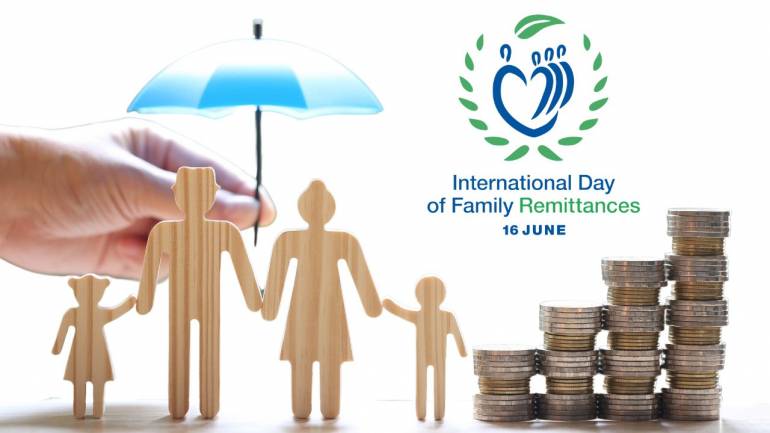International Day of Family Remittances

International Day of Family Remittances is on June 16.
The International Day of Family recognizes the contribution of over 200 million migrants to improve the lives of their 800 million family members back home and to create a future of hope for their children.
For but last two years, the Covid-19 pandemic disrupted all aspects of our lives, including our health, employment, and financial stability. And yet, millions of people around the world continued sending money home to support loved ones as best they could.
Remittances underwrite many basic household needs and support skills formation and opportunities through education and entrepreneurship. These resources prove transformational for both households and local communities, enabling many families to achieve their Sustainable Development Goals (SDGs).
The International Day of Family Remittances is a universally-recognized observance adopted by the United Nations General Assembly and celebrated every year on June 16.
This day further highlights the great resilience of migrant workers in the face of economic insecurities, natural and climate-related disasters and a global pandemic.
Half of these flows go to rural areas, where poverty and hunger are concentrated, and where remittances count the most.
This year, the United Nations is continuing last year’s theme for International Day of Family Remittances: recovery and resilience through digital and financial inclusion.
Family remittances are non-commercial monetary transfers between family members in the United States and family members in a sanctioned country. It is not uncommon in a lot of cultures to have family members go to the United States to work and then send money home.
One of my friends regularly sends money home to her mother and two siblings. Her efforts help pay for their education and the upkeep of their home.
The payments she sends home drive potential passion, and the opportunity for a more prosperous future for her family.
Paying for family members’ education is a common motivator for remittance senders.
One of the small business owners and Remitly customers Peter went to the Middle East from Bangladesh, seeking opportunities he did not have in his home country.
Now, not only does Peter’s cleaning business employ people in the Middle East, where he lives and pays taxes, but it also makes a big difference for his family back home.
He says, “I am proud of my son, who is finishing his university studies to be a teacher. He studies languages there. My work here has enabled him to study like I could not.”
Remitly is honored to serve our families, friends and customers, who contribute so much to their communities in two countries.
The UN calls for governments, the private sector, development organizations and the civil society to promote digital and financial solutions for remittances that foster greater social and economic resilience and inclusion.
So, let us start by building our own social media package, draft a thematic newsletter for our network or organize an online event and think creatively about how you can bring this opportunity to the world’s attention.
Radio Veritas Asia (RVA), a media platform of the Catholic Church, aims to share Christ. RVA started in 1969 as a continental Catholic radio station to serve Asian countries in their respective local language, thus earning the tag “the Voice of Asian Christianity.” Responding to the emerging context, RVA embraced media platforms to connect with the global Asian audience via its 21 language websites and various social media platforms.














